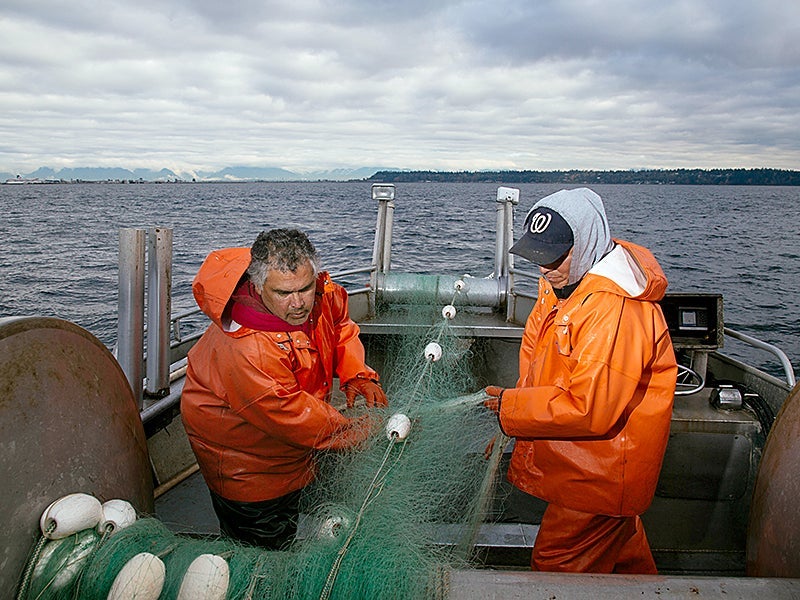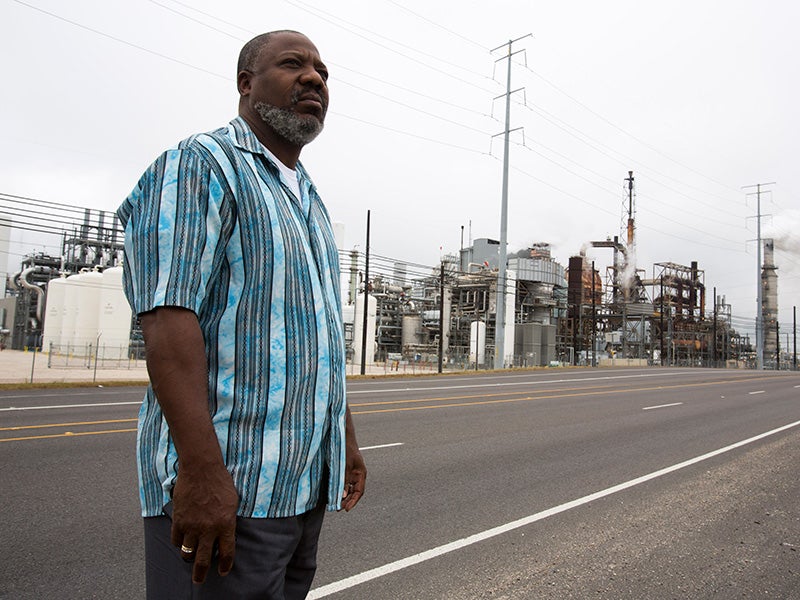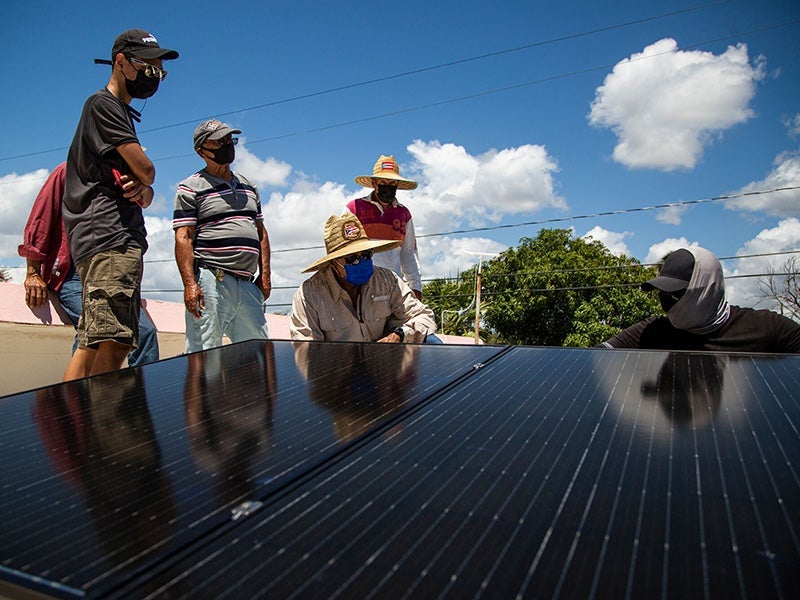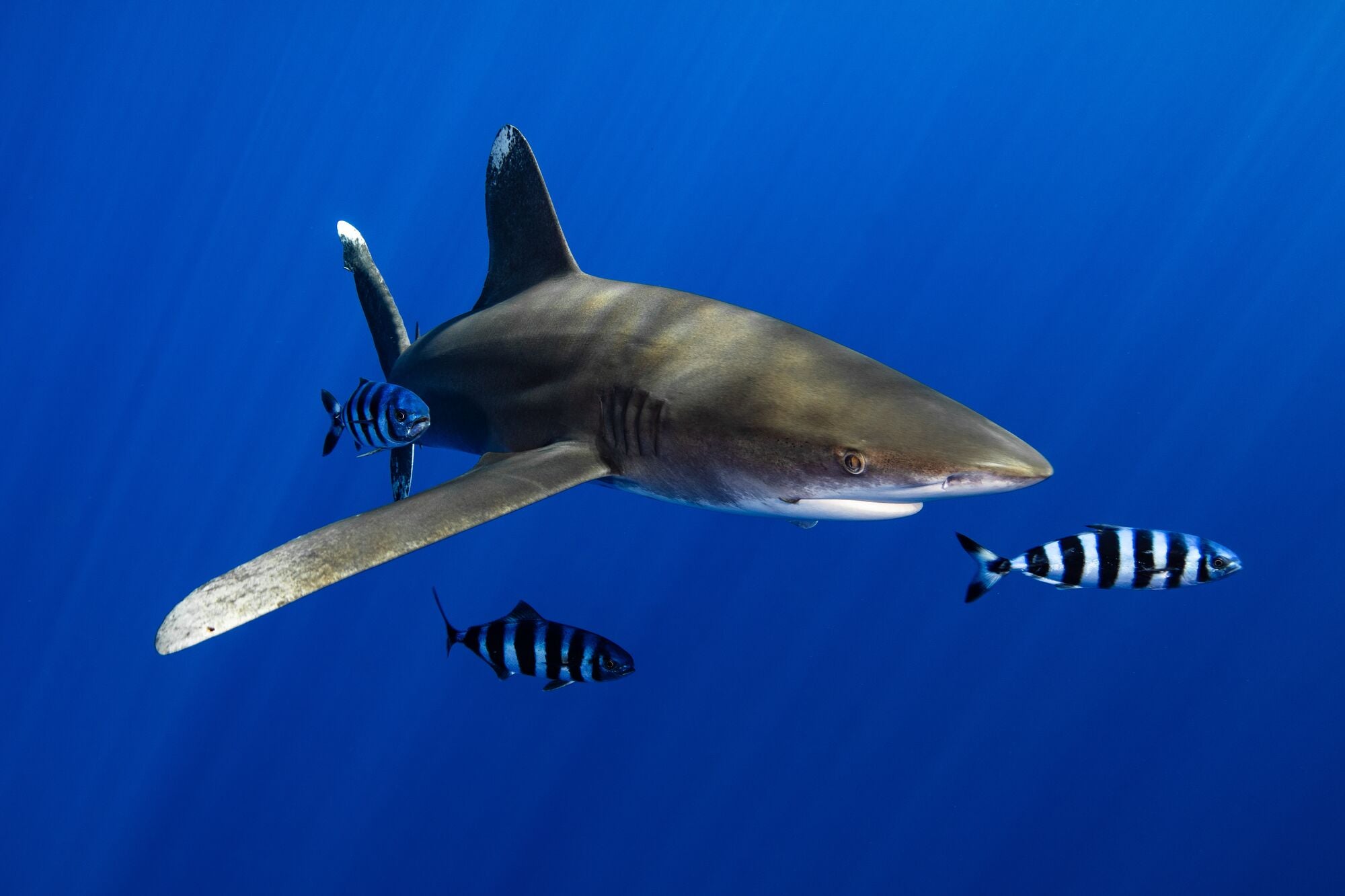Putting Justice First in Ocean Policy
A new policy platform aims to make ocean policy more equitable by amplifying the voices of the most impacted communities.

This page was published 3 years ago. Find the latest on Earthjustice’s work.
As we work to address the climate and biodiversity crises, it is imperative that we put justice and equity at the heart of our solutions, including for the ocean. Black, Indigenous, and people of color along the coasts have been disproportionally impacted by rising sea levels, intensifying storms, and the planet-killing oil and gas industry. Seaside communities battle pollution, industrial fishing, habitat loss, and development that’s wiping long-time neighborhoods and traditions off the map.
A new collaborative alliance called the Ocean Justice Forum is taking steps towards understanding and addressing these inequities. Earthjustice is among 18 environmental justice, community, Indigenous, and national ocean conservation organizations that joined together in the forum to develop an Equitable and Just Ocean Policy Platform.
The platform identifies ocean justice communities as those that — as a result of racism and colonialism — have been systematically excluded from power, under-resourced, under-served, marginalized, and over-burdened by the health and environmental impacts of industrialization and development. Many of these communities have been forced by decades of segregationist housing policy and racially-biased zoning decisions into “sacrifice zones” — areas of concentrated industrial pollution.
For example, the hurricane-prone Gulf of Mexico coast is riddled with chemical plants, including roughly half of the nation’s oil and gas refineries. Inequitable government decisions have situated these polluting facilities in low-income areas. The Union of Concerned Scientists found that those burdens fall most heavily on people of color: Latinx and Black households are, respectively, 60% and 75% more likely to have chemical facilities nearby than the nation as a whole.
While the recently passed Inflation Reduction Act made historic investments in climate solutions and is critical to setting the U.S. on the path to achieve its climate goals, this victory came at the cost of allowing even more drilling and more pollution in the historically marginalized communities of the Gulf of Mexico and Alaskan coasts.
The Ocean Justice Platform is the result of a concerted effort to make ocean policy more equitable by listening to and amplifying the voices of the most impacted communities. The platform establishes what is needed to achieve ocean justice and sets clear priorities to guide policymakers’ approach to just and equitable ocean policy. Those priorities, co-created over the past year, are:
- Protect the ocean and the benefits it provides for all
- Alleviate the disproportionate burdens placed on ocean justice communities due to ocean pollution
- Promote an economy that sustains the ocean and communities that rely on it
- Uplift justly-sourced renewable energy from the ocean
- Prioritize community social cohesion in disaster response and adaptation investments
The platform presents the environmental movement and policymakers with a new path — one of deep collaboration, of partnership, and of trust. Now is the time to make climate policy more inclusive and just and address the shortcomings of policies of the past that have left frontline communities behind. This platform lays out an ambitious and necessary vision to guide policy in the direction of ocean justice. Read the entire platform, and sign on.
Earthjustice works with communities across the U.S. to fight for ocean justice. Here are some of the stories of resistance and resilience that our partners and clients have shared with Earthjustice staff over the years:
Tacoma, Washington
An LNG terminal is also at the heart of a case on behalf of the Puyallup Tribe in Tacoma, Washington. The polluting Tacoma LNG refining facility sits on the Tacoma Tide Flats — the Tribe’s ancestral territory. The Puyallup Tribe and the local community have opposed the facility for years, pointing out that the permitting agencies failed to consult with the Tribe, and that the fossil-fuel company behind it misrepresented the polluting facility as clean energy and illegally built it without proper permits.
Also in the northwest, along the U.S.- Canadian border, Lummi, Tulalip, Swinomish, and Suquamish nations have been fishing in the Salish Sea waters for generations. When the Trans Mountain Pipeline Expansion threatened to triple tanker traffic on the border between the northwestern U.S. and Canada, the Tribes fought back.
“I’ve been a commercial fisherman all my life. It’s all I’ve ever done,” said Dana Wilson, member of the Lummi Nation. “My father was a fisherman; his father was a fisherman; and his father was fisherman,” Wilson said. “I have 11 grandkids—the way of life that we teach our children is the water and the way to fish. In our language, it’s called Schelangen — the way of life, the way of the water.”
“So much we’re losing, losing, losing every generation. And what are we going to have left for our future generations if we don’t start managing and watching where we’re at and the direction we’re going in. Today, it’s like trying to fish on a freeway. It gets pretty overwhelming having a 200-tonne ship bearing down on you. You don’t know which end of your net to run to.” Learn more.
Port Arthur, TX
Hilton Kelley lives near a refinery in Port Arthur, Texas, a majority Black and Latinx community that was hard hit by Hurricane Harvey in 2017.

Hilton Kelley stands in front of the Valero oil refinery in Port Arthur, TX, in late November 2013. Residents are suffering ill health effects from living with disproportionately high levels of toxic air, including cancer-causing chemical compounds.
(Eric Kayne / Earthjustice)
“The restaurant my wife and I own was flooded and severely damaged, and my father-in-law’s house was also damaged and flooded,” Kelley said.
“While trying to help my family and neighbors get back on their feet, we were also being subjected to toxic and hazardous substances with virtually no protection.” Learn more.
Puerto Rico
One rising threat to coastal communities worldwide is the uptick in terminals that process and move liquified natural gas (LNG) — a dangerous fuel source that relies on fracking and poses a serious explosion risk.

Volunteers with the group Comunidad Guayamesa Unidos por tu Salud install a solar power system in the home of community member in the Puente de Jobos neighborhood of Guayama, P.R., on Mar. 20, 2021. (Erika P. Rodríguez for Earthjustice)
In Puerto Rico, U.S.-based fossil fuel company New Fortress Energy began constructing a new liquefied natural gas import terminal in 2019 with infrastructure and a pipeline to the nearby San Juan power plant. No one in the surrounding communities was notified or consulted — even though the potentially explosive terminal sits less than a quarter mile from the closest homes. It soon became apparent that New Fortress Energy hadn’t gone through the proper federal permitting process to construct a terminal.
After several community organizations penned a letter demanding that the Federal Energy Regulatory Commission (FERC) take jurisdiction over this illegally constructed and operated terminal, FERC opened an investigation. Earthjustice represented numerous local organizations and worked with the local utility’s own labor union to successfully convince FERC to assert jurisdiction over the terminal and require New Fortress to apply for a late permit. After New Fortress appealed the ruling to the D.C. Circuit, Earthjustice filed an amicus brief on behalf of the same clients. The court upheld the ruling, requiring New Fortress to comply with the permit application process. Earthjustice will represent the same client coalition through the new permitting process, and will is demanding a rigorous environmental impact statement and public safety review so that New Fortress is held accountable for the public safety, environmental, and climate threats that its gas terminal presents.
“We are at risk of more powerful hurricanes for six months of the year as a result of climate change,” said Myrna Conty, a local Puerto Rican community leader with the group Amigos del Río Guaynabo. “Transforming Puerto Rico’s energy system to run off of natural gas perpetuates the burning of fossil fuels, increasing climate change, and moves us away from implementing renewable energy. In our country, we have sun practically 365 days a year. The price of natural gas is currently increasing. To make matters worse, gas will raise our electricity rates even more. We have the solution, and it is to install photovoltaic systems on roofs with batteries. With a solar system, we would be a more resilient country.” Learn more.
Hawaii and American Samoa
Worldwide, industrial-scale fishing fleets are pillaging ocean resources and regulators aren’t doing enough to rein in these devastating practices. Longline boats lay out hook-filled lines stretching as long as 50 miles, and catch anything in their path. These industrial fleets can devastate ocean ecosystems that traditional communities depend on for their way of life.

An oceanic whitetip shark, Carcharhinus longimanus, swims in the waters off Hawaii.
(Kaikea Nakachi)
For example, in the waters off Hawaii and American Samoa, federal fisheries managers haven’t done what’s needed to protect oceanic whitetip sharks, a dwindling species that are often caught unintentionally when fleets are targeting other fish, such as tuna and swordfish.
“We are out on the water in Hawai‘i all the time, and in our native tradition, we consider the sharks our sacred protectors,” said native Hawaiian cultural practitioner Mike Nakachi. “We know that too many oceanic whitetip sharks are getting caught and killed, and that upsets the whole marine ecosystem.”
Nakachi, a legal client of Earthjustice, is among Native Hawaiians who have a special relationship with the shark (manō) as a family ‘aumakua — a diefied ancestor that protects and warns against danger. Native Hawaiian cultural practitioners may honor their ‘aumakua by acting as shark guardians (kahu manō) and defending these sacred animals from death. due to inhumane fishing practices.
Earthjustice filed suit in May 2022 on behalf of Nakachi and the Conservation Council for Hawai‘i against the National Marine Fisheries Service. The suit challenges the agency’s decision to allow multiple longline fisheries in the Western and Central Pacific to injure and kill oceanic whitetips without first making sure that fishing impacts aren’t impairing the threatened species’ ability to survive or preventing it from recovering to healthy levels. The Endangered Species Act requires the Fisheries Service to complete scientific studies assessing the impacts on the species before it can permit fishing that could harm these sharks. Learn more.
Earthjustice’s Oceans Program uses the power of the law to safeguard imperiled marine life, reform fisheries management, stop the expansion of offshore oil and gas drilling, and increase the resiliency of ocean ecosystems to climate change.
Established in 1989, Earthjustice's Policy & Legislation team works with champions in Congress to craft legislation that supports and extends our legal gains.